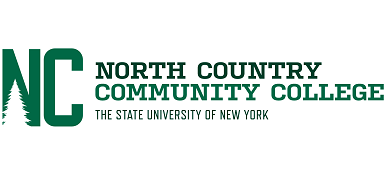Consensual Romantic Relationships
North Country Community College (NCCC) is committed to ensuring that our students,
faculty, and staff can learn and work in an environment that is free from nepotism,
harassment, exploitation, and conflicts of interest. NCCC is also committed to promoting
fairness in grading, evaluation, and career opportunities. In order to achieve this,
it is vital that faculty and staff maintain professional boundaries with students,
and with employees over whom there is or will be a supervisory relationship.
NCCC faculty and staff members exercise power and authority over NCCC students and
employees for whom they have current supervisory, instructional, or other professional
responsibility which creates a power imbalance. This makes consent within any sexual,
intimate, or romantic relationship between a supervisor and employee or between a
faculty or staff member and a student problematic, and may impede the real or perceived
freedom of the student or employee to terminate or alter the relationship. Further,
it may cause individuals outside of that relationship to believe that they are treated
in an unequal manner during such a relationship or after it terminates, or it may
cause individuals to feel that entering into such a relationship is necessary or assistive
in attaining their academic or career goals. Such a relationship may damage the credibility
or reputation of the employee, the department or unit, or the campus as a whole and
may expose individuals or the institution to legal action and liability.
In the academic context, amorous relationships that might be appropriate in other
circumstances have inherent dangers when they occur between faculty and students.
Implicit in the idea of professionalism is the recognition by those in positions of
authority that in their relationships with students and staff there is an element
of power. Because inherent power differentials exist where there is no direct teaching
or supervision of students, NCCC faculty and staff are prohibited from entering into
romantic, intimate, and/or sexual relationships with students regardless of department
or relationship and are prohibited from entering into romantic, intimate, and/or sexual
relationships with any student in their academic department. There is a presumption
against romantic, intimate, and/or sexual relationships between employees where there
is a current supervisory imbalance, and such relationships must be reported to determine
if an alternative supervisory structure is possible. Non-consensual relationships
are always prohibited and may implicate other policies or laws.
Students:
NCCC faculty and staff are prohibited from engaging in any sexual or romantic relationship if there is an existing supervisory, evaluation or instructional relationship, unless the relationship is disclosed and supervision, evaluation, or instruction is terminated in accordance with the policy.
Employees in a Supervisory Relationship:
NCCC faculty and staff are prohibited from supervising any employee with whom they are engaged in a romantic, intimate, and/or sexual relationship. Faculty and staff who seek to enter into a romantic, intimate, and/or sexual relationship with any employee for whom they provide supervision must notify their direct supervisor and the Director of Human Resources or designee. The Director of Human Resources or designee shall notify the Area Supervisor, or equivalent, overseeing the relevant division. Initial disclosure must occur within two (2) business days of commencement of the romantic, intimate, and/or sexual relationships. The employee’s supervisor, in concert with the Director of Human Resources or designee, and the Area Supervisor or equivalent shall determine whether an alternative supervisory structure can be created to ensure that supervisors in a consensual romantic or sexual relationship with an employee be removed from any evaluation of the employee, and from any activity or decision that may appear to reward, penalize, or otherwise affect the employment status of the employee is possible and, if so, shall direct the employees to the alternative supervisory structure. Even if the relationship concludes (whether amicably or not), the covered employee may never supervise the other employee.
Pre-Existing Relationships:
Relationships and marriages between faculty, staff, and/or students that pre-date enrollment as a student or hire as a faculty or staff member are permissible provided that the relationship is disclosed to the faculty or staff member’s direct supervisor and to the Director of Human Resources or designee. Disclosure must occur within two (2) business days of enrollment or hire so that an alternative supervisory structure may be reviewed. Failure to timely notify appropriate staff can subject the faculty or staff member to discipline up to and including termination.
Student Employees:
Students also serving as employees shall be categorized as staff.
Monitoring the status of alternative supervision is the responsibility of the direct supervisor and the Director of Human Resources or designee. All documentation under this policy shall be maintained in the Human Resources Office.
Retaliation for making a report or participating in a process under this policy is prohibited and may result in discipline up to an including termination. Legal consent between the parties shall not be a defense to a violation under this policy. NCCC prohibits an individual from knowingly filing a false complaint or making misrepresentations of sexual misconduct. A complaint made in good faith is not considered false merely because the evidence does not ultimately support the allegation of sexual misconduct. If an investigation results in a finding that a person who has accused another of sexual misconduct has acted maliciously or has recklessly made false accusations, the reporting party will be subject to appropriate sanction. It is important to note that due process considerations may limit the ability to investigate or resolve anonymous complaints.
